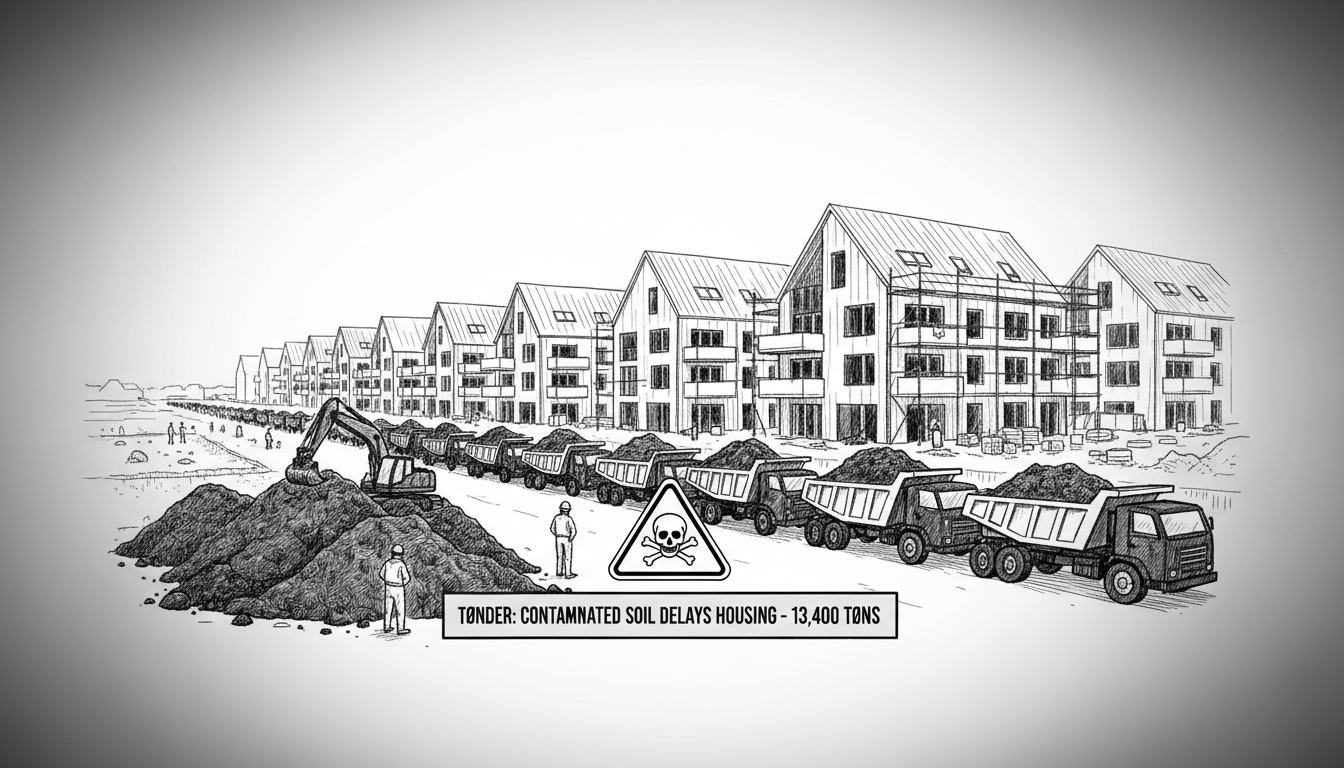A major housing development in Tønder faces unexpected delays. Contaminated soil and archaeological discoveries have pushed back construction by three months.
Workers removed 13,400 tons of polluted earth from the Nørregade site. That equals 450 truckloads of soil requiring special disposal.
The project includes 52 affordable apartments and five penthouse units. CJ A/S from Fredericia serves as the main contractor with a budget of 135 million Danish kroner.
Who pays for the cleanup? The developer bears all additional costs for soil remediation. Parties have not disclosed the final price tag including environmental work.
Archaeological finds created extra unexpected work alongside the contamination issues. The combined challenges mean residents will wait longer for their new homes.
Tønder sits near the German border in Southern Denmark, an area seeing increased housing demand. Such contamination delays highlight the hidden costs of urban redevelopment.
Why do Danish construction projects often face these delays? Many older industrial sites contain buried pollution that only emerges during excavation. The country's strict environmental laws require complete cleanup before new construction.
